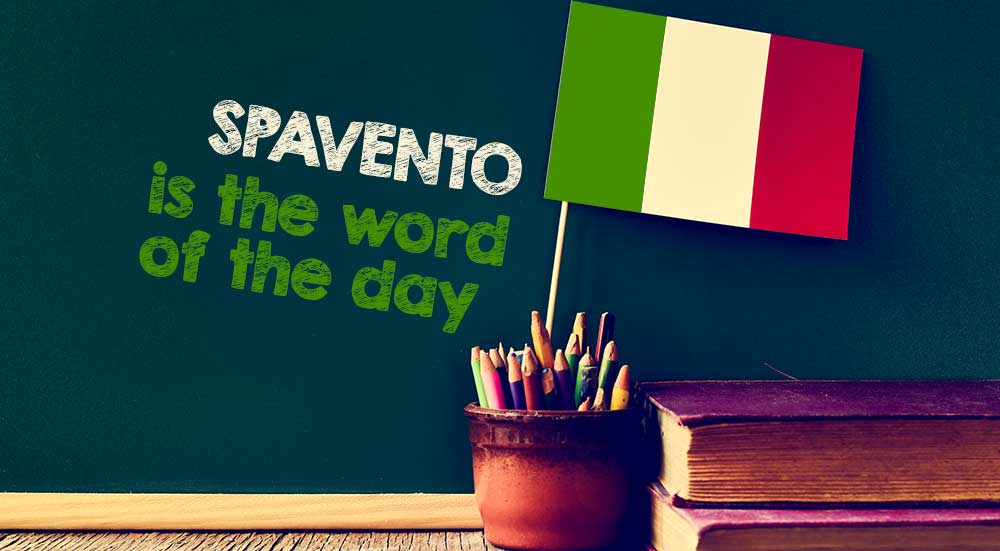The Italian word spavento (spah-vehn-toh) refers to a sudden and intense feeling of fear or fright. It is commonly used to describe an emotional reaction to an unexpected event or perceived danger, and can also imply shock or alarm in less literal contexts, for example, when someone is surprised by something unsettling or unpleasant.
The intensity of spavento makes it similar to a momentary panic, as opposed to a more prolonged sense of fear or anxiety. For instance, Ho avuto uno spavento quando ho visto l’incidente (“I was frightened when I saw the accident”) delivers this sense of immediate alarm. Etymologically, spavento comes from the verb spaventare, meaning “to frighten.” The verb itself is rooted in the Latin verb expavento from paveo (to fear).
In everyday Italian, spavento can describe not only fear but also moments of overwhelming shock or surprise: for instance, someone might say, Quella scena mi ha fatto prendere uno spavento! (“That scene gave me a fright!”) after watching a particularly scary or startling part of a film. But the word can also be used in a figurative sense to emphasize surprise or dismay: La sua faccia fa spavento! (“His face is shocking!”), implying that something is so off-putting it causes shock. This use can also be extended to describe unpleasant or chaotic situations, such as C’è un disordine che fa spavento! (“This mess is shocking!”)
The versatility of spavento is notable in both casual conversation and literature, where writers of all ages often used it to evoke strong emotions, whether it be terror in a dramatic context or amazement when describing something extreme.
- Quando ho visto il serpente, ho provato uno spavento incredibile!
- When I saw the snake, I felt incredible fright!
- La tua stanza è così disordinata, fa spavento!
- Your room is so messy, it’s shocking!





























